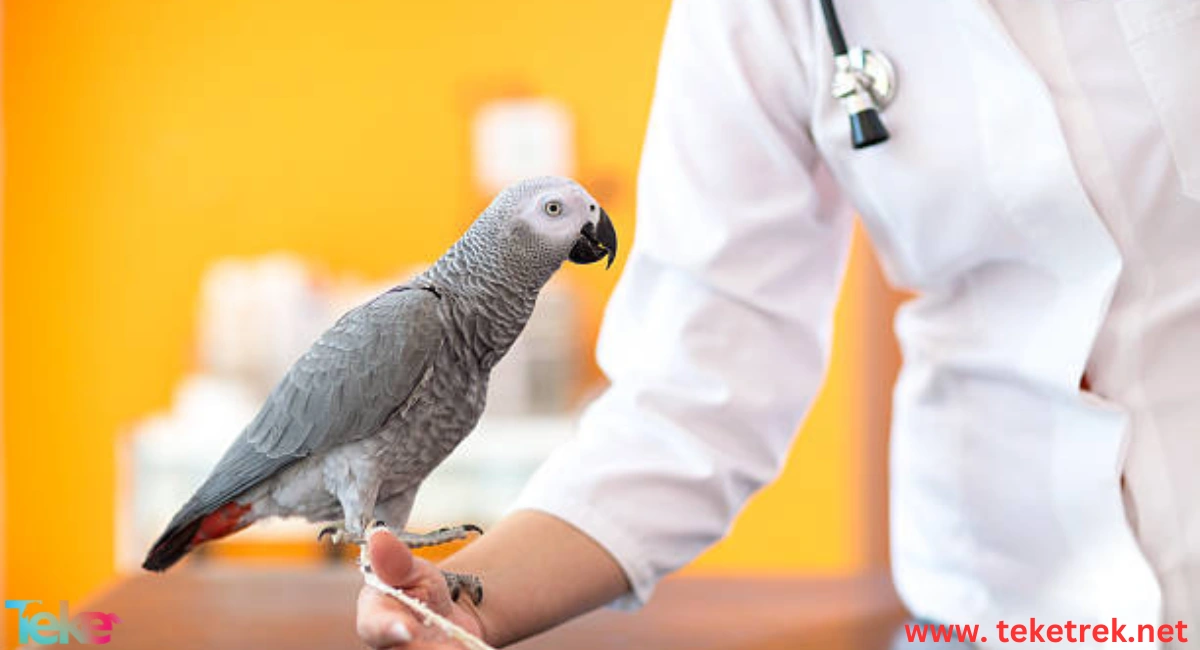Parrots are beautiful birds, unique in their temperament from other birds. They can talk and sing like humans, possessing a high degree of intelligence and learning behaviors quickly. They are also playful birds that create a fun atmosphere in the home and are loved by both young and old. They are also beautiful birds with beautifully colored feathers that bring joy to those who see them. Therefore, many people love to raise and care for them.
There are different types and species of parrots, varying in size and color. Parrots are also extremely sensitive birds and are affected by the way they are raised and cared for. Therefore, it is important to know all the details related to raising parrots to avoid making any mistakes that could harm the bird. For this reason, we have provided you with this comprehensive guide from teketrek، with all the information on how to care for parrots at home.
Tips of Parrot Care at Home
If you want to raise a parrot in your home, you must provide a suitable environment for it. You must also know the type of food it eats, as well as the details of how to handle it, given that it is an intelligent creature and picks up on behavior from humans. How to take care of a parrot at home?
Choosing the Right Cage for Your Parrot
The first step you should consider when acquiring a parrot is providing it with a suitable cage. Parrots like to live in a large cage where they can move freely and spread their wings. The cage should also have a place for food and water, and they also like a swing on which they can spend time, sing, and dance. The cage must be cleaned regularly. The cage should also have a good lock, as parrots are intelligent and can open even poorly secured locks. A strong lock helps prevent the parrot from escaping from the cage, especially when the homeowner is not around.

Proper nutrition for parrots
Maintaining proper nutrition for parrots is extremely important. what are parrots eat? A varied diet containing beneficial nutrients should be provided. Parrots’ diet should include a variety of vegetables, fruits, and seeds. They prefer to eat certain vegetables, such as broccoli, carrots, lettuce, and cauliflower. They can also be offered bread soaked in milk. They also enjoy eating rice. Parrot food is highly nutritious and can be relied upon for feeding parrots. Care should be taken not to offer fruits that contain high levels of sugar, such as peaches and bananas. There are several foods that are dangerous for parrots, such as sweets, coffee, parsley, avocados, and salty foods.
Top 8 Pet Care Tips at Home: Nutrition, Health, Training, and More
The Importance of Playing with Parrots
Parrots are playful birds that love to play, sing, and dance. There are several entertaining games that can be offered to parrots to prevent them from getting bored, as they spend most of their time alone. These entertaining games help parrots develop their intelligence and skills. Interacting with and playing with their parrots is also important in strengthening the bond between them, as parrots are social and love to interact with others, especially if they are their owner. Continuous play also teaches parrots many human behaviors.
Caring for Parrot Health and Preventing Disease
Raising parrots requires careful care. This includes providing them with a comfortable and clean environment, monitoring their health on a regular basis, and providing them with treatment if they become ill. Parrot health can be maintained at home by:
- Constantly cleaning the cage to prevent the buildup of bacteria that could cause illness.
- Providing a diet that is appropriate for the parrot’s health and contains the right nutrients.
- Regular visits to the veterinarian should be scheduled to ensure the parrot’s health and prevent health problems.
- Personal care for your parrot’s hygiene includes regular bathing, trimming its nails, and clipping its wings from time to time.
How to Train a Parrot to Speak and Behave Well
Before you begin training your parrot, you must first approach it without upsetting it. You can also offer it favorite foods and avoid approaching it. You should also reserve favorite foods for training only as a form of reward. After you win the parrot’s affection, you can play with it and train it through intelligence games. You must talk to your parrot constantly, as it mimics human speech. You can begin by teaching it simple, understandable phrases such as “good morning.” Avoid using bad language in front of it, so it does not repeat these words. Learning your parrot’s body language is essential to understanding its psychological state. It is fearful when it stands upright, and when it feels happy, its feathers are fluffy. It expresses its discomfort by standing on one foot with its feathers fluffed up.
Benefits of Raising Parrots at Home
Parrots are beautiful, colorful birds that are easily raised at home. They quickly become accustomed to humans and have numerous benefits, which we mention below:
- Interacting and playing with a parrot reduces stress and anxiety.
- The sounds and chirps made by parrots help calm the mind and create a sense of comfort, alleviating life’s pressures, and promoting psychological well-being.
- Contemplating a parrot’s colors and appearance is soothing to the eye and makes the soul happy.
- Having a parrot at home creates a fun and joyful atmosphere.
Hazards of Raising Parrots at Home
Although raising parrots is a favorite pastime for many, it requires significant care and time to care for them and clean their habitat. They can also cause allergies in people with bird allergies, transmit certain diseases, and cause damage to household items, such as tearing clothes, papers, pillows, and wood.

FAQs
- Is a parrot easy to take care of?
Parrot care is easy, but it requires a great deal of effort to prevent the parrot from contracting diseases. It is important to keep the parrot and its cage clean regularly, provide it with appropriate food, visit the vet from time to time, and maintain the parrot’s personal hygiene.
- Should I spray my parrot with water?
Parrots usually enjoy bathing, but sometimes they may prefer to spray water coolers from time to time, depending on their breeder’s experience.
- Do parrots require special care?
Yes, they do need special care because they are very sensitive and intelligent birds, which are affected by poor nutrition and poor hygiene.
- Is it a good idea to raise a parrot at home?
Yes, raising a parrot at home is a favorite activity for everyone due to its positive interaction with humans, its intelligence, and its ability to speak and emulate human-like behavior through imitation and mimicry.
In the end, taking care of a parrot at home is one of the things that many people love and that requires a lot of attention, as a large cage must be provided that is suitable for the size of the parrot. It is also necessary to pay attention to the proper nutrition of the parrot and stay away from harmful foods. A periodic visit to the veterinarian is one of the important things for the health of the parrot to find out whether it is It faces health problems. It is also important to allocate time to play and interact with the parrot, teach it good behavior, speak to it using simple language, and avoid using offensive language. Raising a parrot is truly fun and enjoyable, adding joy to the home.





